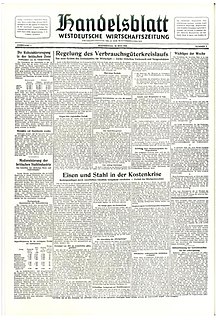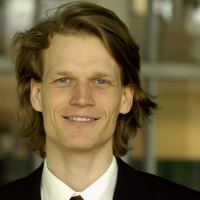
Knowledge management (KM) is the collection of methods relating to creating, sharing, using and managing the knowledge and information of an organization. It refers to a multidisciplinary approach to achieve organisational objectives by making the best use of knowledge.
Organizational learning is the process of creating, retaining, and transferring knowledge within an organization. An organization improves over time as it gains experience. From this experience, it is able to create knowledge. This knowledge is broad, covering any topic that could better an organization. Examples may include ways to increase production efficiency or to develop beneficial investor relations. Knowledge is created at four different units: individual, group, organizational, and inter organizational.
The reputation of a social entity is an opinion about that entity typically as a result of social evaluation on a set of criteria, such as behaviour or performance.
A consultant is a professional who provides advice and other purposeful activities in an area of specialization.

The Handelsblatt is a German-language business newspaper published in Düsseldorf by Handelsblatt Media Group, formerly known as Verlagsgruppe Handelsblatt.

The University of Mannheim, abbreviated UMA, is a public research university in Mannheim, Baden-Württemberg, Germany. Founded in 1967, the university has its origins in the Palatine Academy of Sciences, which was established by Elector Carl Theodor at Mannheim Palace in 1763, as well as the Handelshochschule, which was founded in 1907. The university is regularly ranked as Germany's best business school as well as a leading institution in economics and social sciences.
The resource-based view (RBV) is a managerial framework used to determine the strategic resources a firm can exploit to achieve sustainable competitive advantage.

Thomas Curley is an American businessman and journalist who served as President of the Associated Press, the world's largest news organization. He retired in 2012.
Thomas Hayes "Tom" Davenport, Jr. is an American academic and author specializing in analytics, business process innovation, knowledge management, and artificial intelligence. He is currently the President’s Distinguished Professor in Information Technology and Management at Babson College, a Fellow of the MIT Initiative on the Digital Economy, Co-founder of the International Institute for Analytics, and a Senior Advisor to Deloitte Analytics.

The Bertelsmann Stiftung is an independent foundation under private law, based in Gütersloh, Germany. It was founded in 1977 by Reinhard Mohn as the result of social, corporate and fiscal considerations. As the Bertelsmann Stiftung itself has put it, the foundation promotes "reform processes" and "the principles of entrepreneurial activity" to build a "future-oriented society."
A community of practice (CoP) is a group of people who "share a concern or a passion for something they do and learn how to do it better as they interact regularly". The concept was first proposed by cognitive anthropologist Jean Lave and educational theorist Etienne Wenger in their 1991 book Situated Learning. Wenger then significantly expanded on the concept in his 1998 book Communities of Practice.
Entrepreneurship is the creation or extraction of economic value. With this definition, entrepreneurship is viewed as change, generally entailing risk beyond what is normally encountered in starting a business, which may include other values than simply economic ones.
Paul M. Leonardi was the Duca Family Professor of Technology Management at the University of California, Santa Barbara. He was also the Investment Group of Santa Barbara Founding Director of the Master of Technology Management Program. Leonardi moved to UCSB to found the Technology Management Program and start its Master of Technology Management and Ph.D. programs. Before joining UCSB, Leonardi was a faculty member in the School of Communication, the McCormick School of Engineering, and the Kellogg School of Management at Northwestern University.
Knut Blind is a German economist. He is active in the fields of innovation economics focusing on regulation and standardization.
Human resource planning is a process that identifies current and future human resources needs for an organization to achieve its goals. Human resource planning should serve as a link between human resource management and the overall strategic plan of an organization. Ageing workers population in most western countries and growing demands for qualified workers in developing economies have underscored the importance of effective human resource planning.
Heidi K. Gardner is a Distinguished Fellow at Harvard Law School's Center on the Legal Profession, a lecturer on Law and Faculty Chair of Harvard Law School's Accelerated Leadership Program and other executive courses.
Serden Özcan is a professor and holder of the Otto Beisheim Endowed Chair of Innovation and Corporate Transformation at the WHU – Otto Beisheim School of Management in Vallendar near Koblenz. During the 2017/2018 academic year the Chair of Innovation and Corporate Transformation moved from Vallendar to Düsseldorf.
Stefan Seuring is a German economist and university professor. Since 2011, he has been heading the Supply Chain Management department at the University of Kassel.

Anne S. Tsui is a professor of International management, who holds the positions of Motorola Professor Emerita of International Management at Arizona State University, distinguished adjunct professor at the University of Notre Dame, and distinguished visiting professor at Peking University and Fudan University, China.
Thomas J. Roulet is a British-French social scientist and management thinker based at the University of Cambridge. He fleshed out the concept of negative social evaluations. He is currently associate professor in Organisation Theory at the Judge Business School, fellow of Girton College and bye-fellow at King's College Cambridge.






